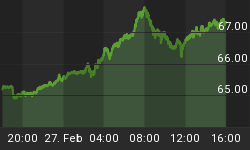Wells Fargo hasn’t exactly reformed—at least according to certain members of the House Financial Services Committee, who took Wells CEO Tim Sloan to task in questioning Tuesday.
Last year at this time, the banking industry breathed a collective sigh of relief when Trump agreed to roll back crippling Dodd-Frank regulations. But the loosening of rules was for banks with assets below $250 billion—so it didn’t help scandal-ridden Wells Fargo at all.
But 2018 gave the authorities plenty of reason to make sure that the biggest banks remain under the biggest rules.
In August, the Department of Justice imposed a hefty $2.09-billion fine on Wells Fargo for the sale of residential mortgage loans that contained misstated income information.
Shortly afterward, the bank was facing yet another inquiry after it unnecessarily foreclosed about 400 homeowners. An internal review apparently found that it failed to grant 625 customers modifications to mortgages--despite their being qualified for relief—and eventually carried out foreclosures on 400 homes.
The year before, Wells Fargo acknowledged forcing 570,000 car-loan customers to pay unnecessary insurance policies. The extra expense resulted in some borrowers ultimately defaulting and having their cars repossessed. The CFPB and the OCC levied a $1-billion fine on the bank for the abuses.
Then, in 2016, it shockingly revealed that it had opened 3.5 million dummy accounts using customer personal information and hit them with phony charges to pad its bottom line. The DoJ imposed unusually harsh penalties on Wells Fargo for that one, including a cap on expansion until it fixes its litany of problems. The bank also agreed to pay shareholders $480 million to settle a class action suit over the fake account fraud. Related: There Is No Catch-All Solution To Climate Change
Fast forward to today, and Sloan—the new CEO—isn’t going to have an easy time of things.
In fact, House Financial Services Chair Maxine Waters told Sloan that Wells Fargo was “too big to manage”, and clearly there remain big questions about the bank’s corporate governance. She also referred to the bank’s “ongoing lawlessness”.
"Wells Fargo's ongoing lawlessness and failure to right the ship suggests the bank — with approximately $1.9 trillion in assets and serving one in three U.S. households is simply too big to manage," Waters said.
A New York Times story from last weekend didn’t help Sloan’s case, either. The article suggests that employees of Wells Fargo are still being pressured to bend or break rules to get more cash out of customers to meet sales goals.
Sloan has been CEO of Wells Fargo since October 2016—in the aftermath of the first, and biggest, scandal.
He insists things are changing for the better.
"I can't promise you perfection, but what I can promise you is that the changes we've implemented since I've become CEO will prevent harm the best we can," CBS quoted Sloan as telling the panel Tuesday. He also described the Times report as "inaccurate."
But the panel remained unconvinced, with Waters saying that the bank’s practice of abuse “appears to persist”.
By Michael Kern for Safehaven.com
















